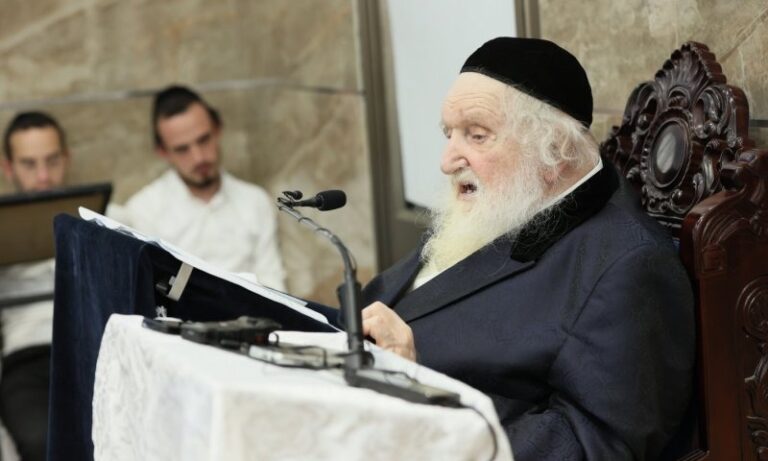 Many people pride themselves on being overachievers, multi-taskers, and individuals that get things done. In the business world this is a highly sought after trait. In the home environment things should be a little different. While these traits are essential for creating an efficiently run home, they also create the risk that the home will have an environment that is too intense.
Many people pride themselves on being overachievers, multi-taskers, and individuals that get things done. In the business world this is a highly sought after trait. In the home environment things should be a little different. While these traits are essential for creating an efficiently run home, they also create the risk that the home will have an environment that is too intense.
The problem with intense people is that they don’t perceive themselves as being intense. Instead, they consider themselves the perfect blend of effectiveness and understanding. Other members of the home may be lazy, incompetent, and/or are unwilling to learn how to improve. However, without them and their goal oriented behavior, the home would not be able to function.
Other members of the home see things differently. They see the intense persons as unable to calm down and enjoy life, something the home needs to experience. They also feel that the intense persons don’t value relationships as much as they value a smooth running home. Lastly, they feel that these persons don’t have a fair sense of balance. They get upset at the slightest incident, ruining the good feeling of the home for hours, and sometimes days, because of a minor incident.
In some cases the intensity may only be mild. They get along with everyone. The only symptoms are that they’re always in a rush and schedule themselves without any room to maneuver. The home, although not intimidating, is stressed. This results in children that are otherwise healthy, missing the warmth needed to make them into better teens. If some of these children are particularly sensitive and quiet, they probably will be greatly affected by such behavior
In many cases the intensity may be more severe. If individuals believe that others consider them to be too intense, they should consider that it may be affecting their relationships with others. They should also consider whether they frequently understand incidents and arguments differently from others. If this is the case then I suggest that they think very carefully about the following four points:
The first is that they must accept the fact that their views of the world, and particularly of incidents that take place between them and others, is not necessarily the way others see them, and may not be correct.
For instance, people that are intense do not appreciate that their body language “speaks” to others. Intense people come across as impatient, irritated, and uncompromising. Even when their words try to convey a different message, their body language, confuses the message. People that interact with them feel, sometimes correctly, that they’re about to lose patience and may lash out at them. Whether or not it’s true, it doesn’t make an emotionally stable relationship possible.
The second is that intense people don’t appreciate relationships as much as they appreciate efficiency. Even though many intense individuals will deny this, particularly when it’s a wife who’s intense, their actions speak loudly. When they speak to me, they’ll plead with me to understand that they rightfully ruined their anniversary date because the check book was incorrectly balanced. For “normal” (non-intense) individuals it would be clear that such an incident, involving efficiency, ruined what should have been a special time together.
Their explanation leads me to the third point. People that are intense are very into “it’s the principle” of the issue. In addition, without their being aware of it, they speak in a controlling (almost like speaking to a child) tone of voice. They conclude their complaints with “I will not tolerate…” or “I have a right to expect…”
The problem is that when this is brought to their attention they either deny it, and/or don’t see why it should affect their relationships. They also don’t understand why an intense conversation that was held the previous day should affect the relationship today. Being intense gives them the ability to compartmentalize their lives, something that others don’t do nearly as well.
The fourth point is that intense people hide their emotions from others. They can be insulted and not show any emotions, or they may respond angrily, not letting the other person even imagine that the behavior is the result of their being hurt. Instead, the anger leads the insulter to believe that the logical next step is an argument and not an apology.
If intense persons are serious about improving they should do the following three steps:
1) They should replay their interactions with others, placing an emphasis on how the others perceived their actions. Particular effort should be made to understand how great is the gap between what they were thinking and how they presented themselves. Understanding this will motivate them to soften their approach to other people, particularly to those for whom they care.
A part of this replay includes considering how an emotional person would react to the incident being considered. A person shouldn’t think, “This is how I might react if I was him”. Instead the person should think, “I accept the fact that the others are more sensitive than I am. How would they react to this incident?”
2) They should realize that their interpretation of events is in sharp contrast to the way others interpret them. Therefore, they must have a third party with whom they can review these events and accept that, despite their strong convictions (remember that the convictions are all strong), the interpretation of the events by the others is more accurate.
3) Reconsider your values. It’s more than just an issue of how to deal more effectively with others. It’s also an issue of understanding that intensity is a great trait in certain circumstances, but counter-productive in others. Efforts must be made to be more emotional, more forgiving, more laid back, and more understanding of others that think differently from you.
In addition, an intense person should consider getting help understanding the concept of relationships. I have written a relevant article on this subject previously, and will send it to anyone who requests it.
Rabbi Shmuel Gluck is director of Areivim, a teen crisis intervention center. R. Gluck’s articles are widely published in the Torah Chinuch world. For previous articles or for speaking engagements you can contact R. Gluck at Areivim: www.areivim.com 845-371-2760 E-mail: [email protected].
(Rabbi Shmuel Gluck – YWN)











One Response
This is an interesting piece and well worth contemplation. I suppose the problem I have with it (and I’m probably about to out myself as an intense person) is that the perspective here is that the burden is presumed to be on the intense person to change him or herself to fit in with his or her chilled-out spouse. The relaxed spouse is “right” and the intense spouse is “wrong.” And much of the time, this is surely so.
But I can also think of plenty of families in which, over the course of months, years and decades, the family would have been better served to have taken things a little more seriously, cared a little more about things like time and effort and obligation. It’s great to be super chilled about everything until one day it turns out that your children treat school like a hobby, who then as teens and young adults figure parnasa will just fall into their laps, and then as parents can’t get their children to school within 30 minutes of the start of the day, and the cycle repeats. There’s a point where chilled becomes nonchalant becomes lackadaisical becomes flippant, and it’s a disservice to pretend that everything will work out in the end. There is no magic in this world and Hashem doesn’t just decree that everyone will get by swimmingly. To me, this is why it helps to have an adult in the home who is, as you call it, intense. And I think it’s a shame if the perspective is always that the intense spouse must bend to the wishes of the relaxed spouse. Maybe the author agrees with that sentiment, but I sense that his inclination is nisht azoy.
My two cents.